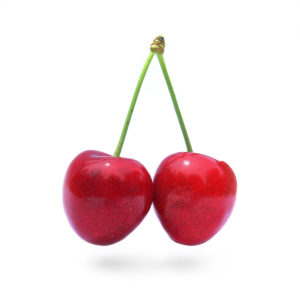 The researchers go overboard in their claims of what this study shows (after all, only 15 men were in the study, their blood pressure was only slightly elevated, and they were studied only for a short time). But.....what this study does show is that tart cherry juice seems to have some health benefits, such as lowering blood pressure for a while. Even though the researchers received funding from the Cherry Marketing Institute, it doesn't change the fact that cherries are considered healthy foods to eat. Montmorency tart cherries (MCs) are high in numerous phytochemicals (which have health benefits), including flavonoids (isorhamnetin, kaempferol, quercetin, catechin, epicatechin, procyanidins, and anthocyanins).
The researchers go overboard in their claims of what this study shows (after all, only 15 men were in the study, their blood pressure was only slightly elevated, and they were studied only for a short time). But.....what this study does show is that tart cherry juice seems to have some health benefits, such as lowering blood pressure for a while. Even though the researchers received funding from the Cherry Marketing Institute, it doesn't change the fact that cherries are considered healthy foods to eat. Montmorency tart cherries (MCs) are high in numerous phytochemicals (which have health benefits), including flavonoids (isorhamnetin, kaempferol, quercetin, catechin, epicatechin, procyanidins, and anthocyanins).
So check the ingredient list before you buy the tart cherry juice to make sure it is pure juice, and then enjoy a glass knowing that'll it'll benefit (if only temporarily) your blood pressure. From Medical Xpress:
High blood pressure lowers significantly after drinking tart Montmorency cherry juice
Drinking tart Montmorency cherry juice significantly reduces high blood pressure at a level comparable to that achieved by medication, according to new research from Northumbria University, Newcastle.The findings ....found that men with early signs of hypertension - more commonly known as high blood pressure - saw a 7% reduction in blood pressure after drinking Montmorency cherry concentrate when compared to drinking a fruit-flavoured cordial.
This reduction is comparable to the level achieved by anti-hypertensive medication. High blood pressure affects over five million people in England and, if left untreated, increases risk of heart attack, heart failure, kidney disease, stroke or dementia. Normal blood pressure is around 120/80 mmHg.
Researchers from Northumbria University's Department of Sport, Exercise and Rehabilitation worked with fifteen participants who were displaying early hypertension with blood pressure readings of at least 130/90 mmHg....were given either 60ml of a Montmorency cherry concentrate or the same amount of a commercially available fruit-flavoured cordial. Blood pressure and blood samples were taken before the cherry concentrate was consumed and blood pressure was measured on an hourly basis thereafter. Blood samples and a series of other cardiovascular screening tests were taken again on a regular basis over the following eight hours.
The researchers found that the participants who were given the cherry concentrate saw a peak reduction in their blood pressure of 7 mmHg in the three hours after consuming the drink.
Past studies have shown that a reduction of between 5-6 mmHg over a sustained period has been associated with a 38% reduced risk of stroke and 23% reduced risk of coronary heart disease. Interestingly, those participants with blood pressure levels at the higher end of the scale saw the most benefit. The greatest improvement in systolic blood pressure occurred when the phenolic acids, protocatechuic and vanillic, within the cherry concentrate reached their peak levels in the plasma. The researchers believe that these particular compounds are, at least in part, responsible for the reduction. (Original study)
